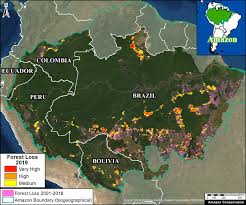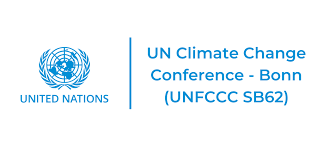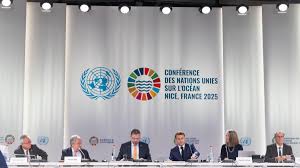Environment
Featured
Amazon Tipping Point: Deforestation Surges Past Critical Threshold as Brazil's Contradictory Policies Spark Global Alarm
Editor
Jun 17, 2025
min read
8 views

The Amazon rainforest, the world's largest tropical carbon sink, has reached a terrifying milestone. A new report from Brazil's National Institute for Space Research (INPE), utilizing advanced satellite imagery, confirms that deforestation in 2024 was the highest on record, pushing the total degraded area past 20% of the original forest cover. This is the critical threshold that many climate scientists have warned could trigger a 'tipping point,' a cascading and potentially irreversible dieback process that would see vast swathes of the rainforest transform into a drier, savanna-like ecosystem. Such a change would have catastrophic consequences for global climate patterns, biodiversity, and the millions of people who depend on the forest. The report, released in early June 2025, has sent shockwaves through the international community and intensified scrutiny of the environmental policies of Brazilian President Luiz Inácio Lula da Silva. Lula's administration, which took office with promises to champion environmental protection and achieve zero deforestation, is now facing accusations of sending dangerously mixed signals. On one hand, the government has indeed ramped up enforcement actions. In a recent high-profile move, Brazil's environmental agency, IBAMA, was granted a $150 million loan from the Amazon Fund to purchase surveillance drones, helicopters, and other equipment to combat illegal mining and logging. Environment Minister Marina Silva has been a vocal advocate for conservation on the global stage. Yet, these efforts are being systematically undermined by powerful political and economic forces within Brazil, and seemingly, by other parts of the government itself. In a series of moves that have alarmed environmentalists, the Brazilian Congress is fast-tracking legislation that would weaken environmental licensing for infrastructure projects and make it harder to recognize and protect Indigenous lands, which are often the most effective barriers against deforestation. More controversially, federal agencies have recently approved plans for offshore oil drilling near the mouth of the Amazon River and are pushing forward with the paving of the BR-319 highway, which would cut through a pristine section of the rainforest, inevitably opening it up to loggers and land-grabbers. 'We are witnessing a schizophrenic government policy,' said Marcio Astrini, executive secretary of the Climate Observatory, a coalition of Brazilian environmental groups. 'One hand tries to put out the fire while the other pours gasoline on it. This will lead to the destruction of the Amazon.' The primary drivers of deforestation remain unchanged: cattle ranching, soybean cultivation for animal feed, and illegal logging and mining operations. Soaring global demand for beef and soy, coupled with high commodity prices, has created immense pressure to clear more land. The latest INPE data shows that deforestation is accelerating not only at the forest's agricultural frontier but also deeper within its heart, in areas previously thought to be safe. The international response has been a mixture of alarm and frustration. European nations, which are major contributors to the Amazon Fund, have warned that continued funding is contingent on Brazil demonstrating tangible progress in curbing deforestation. At the recent G7 summit, the issue was a key topic of discussion, with leaders urging Brazil to align its economic development goals with its climate commitments ahead of the COP30 climate summit, which will be hosted in the Brazilian city of Belém. 'The world cannot afford to lose the Amazon,' German Chancellor Olaf Scholz stated. 'It is the lynchpin of our global climate system. We expect our Brazilian partners to act with the urgency and seriousness this crisis demands.' The fate of the Amazon now hangs in a precarious balance. The scientific community is clear: crossing the tipping point will not be a gradual process but a rapid, self-perpetuating feedback loop of rising temperatures and decreasing rainfall. The coming months will be a critical test of whether Brazil, and the global community that finances and consumes its products, can pull the world's greatest rainforest back from the brink.
Editor
League Manager Editorial Team





Leave a Comment